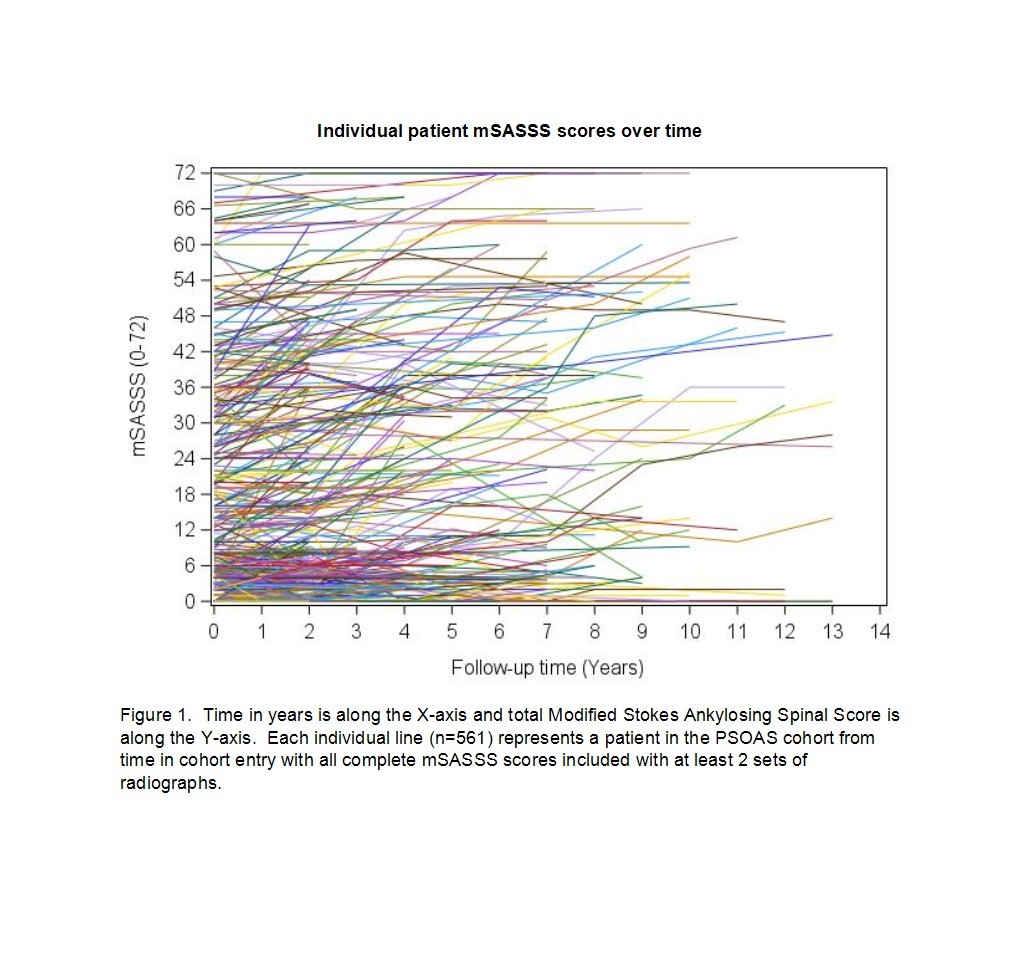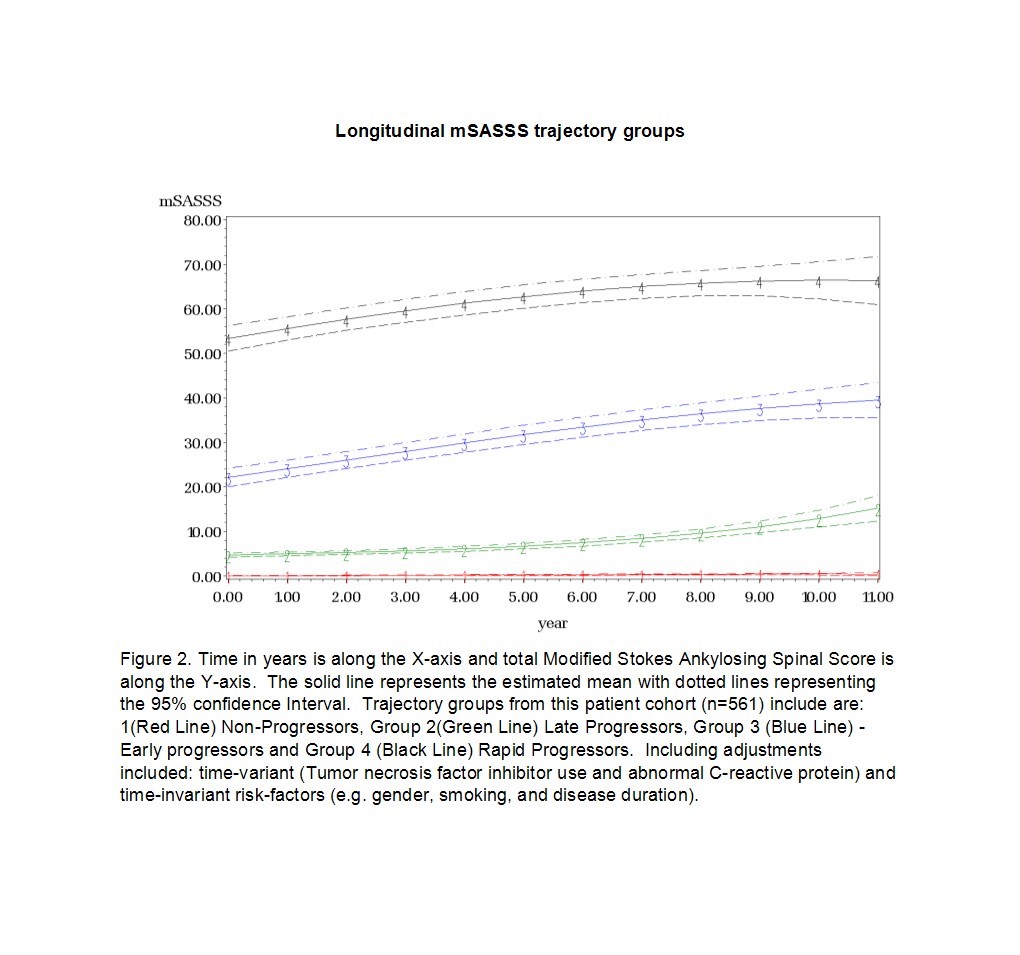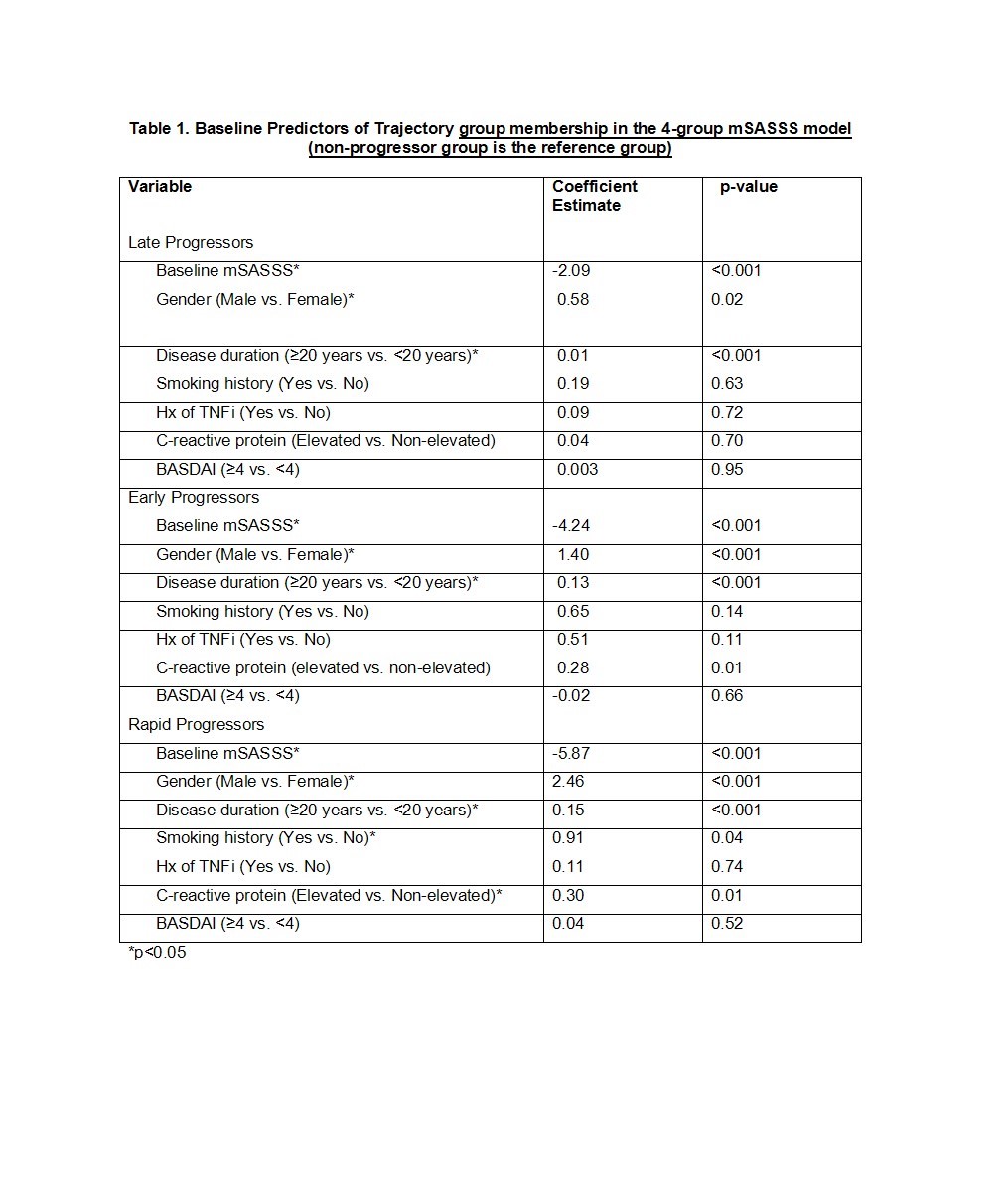Session Information
Date: Saturday, November 6, 2021
Title: Abstracts: Spondyloarthritis Including PsA – Diagnosis, Manifestations, & Outcomes I (0449–0452)
Session Type: Abstract Session
Session Time: 9:45AM-10:00AM
Background/Purpose: Little is known about the natural history of spinal disease in Ankylosing Spondylitis (AS). Our objective was to identify distinct patterns of change in vertebral involvement over time and to study associated clinical factors.
Methods: Data were analyzed from the Prospective Study of Outcomes in Ankylosing Spondylitis (PSOAS) cohort. All patients met modified New York Criteria for AS, and had ≥2 sets of radiographs scored by modified Stoke Ankylosing Spondylitis Spinal Score (mSASSS) read by local-rheumatologist and central-radiologist between 2002-2017. Group-based trajectory modeling (GBTM) was used to classify patients into distinct groups of longitudinal mSASSS considering sociodemographic and clinical covariables. The optimal trajectory model and number of trajectories was selected using Nagin’s Bayesian information Criteria (BIC) (1).
Results: A total of 561 patients with 1618 radiographs was analyzed (Figure 1). The optimum number of trajectory groups identified was four (BIC -4062). These groups were subsequently categorized as: Non-progressors (204 patients, 37% of total), late-progressors (147, 26%), early-progressors (107, 19%) and rapid-progressors (103, 18%)(Figure 2). Baseline predictors associated with higher spinal disease burden groups included: male, gender, longer disease duration, and smoking history (Table 1.). In addition, elevated time-varying C-reactive protein (eCRP) levels were positively associated with higher disease progression groups and time-varying anti-TNF use was associated with decreased mSASSS progression in the rapid-progressor group.
Conclusion: GBTM identified 4 major patterns of spinal disease progression in the PSOAS cohort. Male gender, longer disease duration, eCRP and smoking were associated with higher spinal disease groups. Independent confirmation in other AS cohorts is needed to confirm these radiographic patterns.
Reference:
1. Nagin, D. Group-Based Modeling of Development. Cambridge: Harvard University Press; 2005
To cite this abstract in AMA style:
Hwang M, Lee M, Gensler L, Brown M, Tahanan A, Rahbar M, Hunter T, Shan M, Ishimori M, Reveille J, Weisman M, Learch T. Identifying Trajectories of Radiographic Spinal Disease in Ankylosing Spondylitis [abstract]. Arthritis Rheumatol. 2021; 73 (suppl 9). https://acrabstracts.org/abstract/identifying-trajectories-of-radiographic-spinal-disease-in-ankylosing-spondylitis/. Accessed .« Back to ACR Convergence 2021
ACR Meeting Abstracts - https://acrabstracts.org/abstract/identifying-trajectories-of-radiographic-spinal-disease-in-ankylosing-spondylitis/



